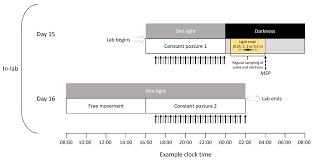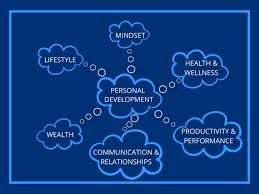Hypnotic: Unlocking the Power of the Subconscious Mind
Have you ever wondered about the mysterious world of hypnosis? Often portrayed in movies and stage shows as a tool for mind control or entertainment, hypnosis is actually a powerful therapeutic technique that can help individuals tap into the potential of their subconscious minds.
Hypnosis, also known as hypnotherapy, is a state of focused attention and heightened suggestibility. Contrary to popular belief, it is not about losing control or being manipulated against your will. Instead, it is a collaborative process between the hypnotherapist and the individual seeking treatment.
The primary goal of hypnotherapy is to access the subconscious mind, which holds our deepest beliefs, emotions, and memories. By bypassing the conscious mind’s filters and defenses, hypnosis allows us to address and reprogram negative thought patterns and behaviors that may be holding us back.
One of the most common misconceptions about hypnosis is that it can magically solve all our problems with a snap of fingers. While it can be incredibly effective for certain issues, such as smoking cessation, weight management, anxiety reduction, or phobia treatment, it is not a cure-all solution.
Hypnotherapy works best when used as part of a comprehensive treatment plan tailored to each individual’s unique needs. It can be integrated with other therapeutic techniques like cognitive-behavioral therapy (CBT) or mindfulness practices to enhance their effectiveness.
During a typical hypnotherapy session, the individual enters a deeply relaxed state while remaining fully aware and in control. The hypnotherapist guides them through specific suggestions and imagery designed to facilitate positive change. These suggestions are tailored to address the person’s specific goals or challenges.
The benefits of hypnosis extend beyond treating specific issues. It can also promote overall well-being by reducing stress levels, improving sleep quality, boosting self-confidence, enhancing focus and concentration, and increasing creativity.
It’s important to note that not everyone is equally receptive to hypnosis. Factors such as willingness, motivation, and the ability to enter a relaxed state can influence its effectiveness. However, with a skilled and experienced hypnotherapist, most individuals can achieve positive results.
If you’re considering hypnotherapy, it’s crucial to seek out a qualified professional who adheres to ethical guidelines and has proper training in the field. They should be able to address any concerns or questions you may have about the process.
In conclusion, hypnosis is a valuable therapeutic tool for unlocking the power of the subconscious mind. By accessing this deep reservoir of thoughts and emotions, we can overcome limiting beliefs, change unwanted behaviors, and create lasting positive change in our lives. Whether you’re seeking personal growth or looking to address specific challenges, consider exploring the potential of hypnotherapy as part of your journey towards self-improvement and well-being.
7 Essential Tips for Successful Hypnosis Sessions: From Finding the Right Hypnotist to Maintaining Motivation
- Find a qualified hypnotist – It is important to find a professional and certified hypnotist who has experience in helping people reach their goals.
- Set realistic expectations – Hypnosis can help you make positive changes, but it cannot solve all of your problems or make you do something against your will.
- Be open-minded – Hypnosis requires an open mind and willingness to explore new possibilities for change.
- Relax and focus on your goal – During the hypnosis session, try to relax and focus on the goal that you want to achieve with hypnosis.
- Allow yourself to be guided by the hypnotist’s words – Listen carefully to the words of your hypnotist and allow yourself to be guided by them into a relaxed state of mind where positive suggestions can take effect more easily.
- Follow up with self-hypnosis sessions at home – After completing a professional session, practice self-hypnosis at home regularly for best results from hypnotherapy sessions over time.
- Stay motivated – Make sure that you remain motivated throughout the process so that you can continue making progress towards achieving your goals with hypnotherapy sessions over time
Find a qualified hypnotist – It is important to find a professional and certified hypnotist who has experience in helping people reach their goals.
Find a Qualified Hypnotist: Unlock the Power of Hypnosis Safely
When it comes to harnessing the potential of hypnosis, finding a qualified and certified hypnotist is crucial. Working with an experienced professional can make all the difference in helping you achieve your goals and unlocking the power of your subconscious mind.
Hypnosis is a powerful tool that requires skill and expertise to be used effectively. A qualified hypnotist has undergone proper training, certification, and has experience in guiding individuals through the hypnotic process. They understand the intricacies of hypnosis and can tailor their approach to meet your specific needs.
By choosing a certified hypnotist, you ensure that you are working with someone who adheres to ethical guidelines and has a deep understanding of the principles behind hypnotherapy. Their experience allows them to create a safe and supportive environment for your journey towards positive change.
A skilled hypnotist will take the time to listen to your goals, concerns, and challenges. They will work collaboratively with you to develop a personalized treatment plan that addresses your unique needs. Whether you’re seeking help with overcoming a phobia, managing stress, or improving self-confidence, a qualified hypnotist will have the expertise to guide you towards success.
Finding a certified hypnotist can be done through various channels. You can start by researching reputable hypnotherapy associations or organizations that provide directories of qualified professionals. These directories often include information about certifications, areas of specialization, and client reviews.
It’s also important to consider personal recommendations from trusted sources who have had positive experiences with hypnotherapy. Hearing firsthand accounts can give you valuable insights into different practitioners’ approaches and effectiveness.
When contacting potential hypnotists, don’t hesitate to ask questions about their qualifications, experience, and success rates in treating issues similar to yours. A professional hypnotist will be transparent about their credentials and gladly address any concerns or queries you may have.
Remember that finding the right fit is essential. A good hypnotist-client relationship is built on trust, empathy, and mutual respect. Take the time to connect with different hypnotists, ask for initial consultations, and trust your instincts when choosing the professional who feels right for you.
In conclusion, finding a qualified hypnotist is a crucial step in unlocking the power of hypnosis safely and effectively. Their expertise, experience, and ethical approach will ensure that you receive the highest quality care as you work towards your goals. So take the time to research, ask questions, and find a certified hypnotist who can guide you on your journey towards positive change and personal growth.
Set realistic expectations – Hypnosis can help you make positive changes, but it cannot solve all of your problems or make you do something against your will.
Set Realistic Expectations: Understanding the Power of Hypnosis
When it comes to exploring the realm of hypnosis, it’s essential to set realistic expectations. Hypnosis is a powerful tool that can facilitate positive changes in your life, but it’s important to understand its limitations.
Contrary to what some may believe, hypnosis cannot solve all of your problems or make you do something against your will. It is not a magical cure or a form of mind control. Instead, hypnosis is a collaborative process that requires active participation and willingness on your part.
Hypnotherapy works by accessing the subconscious mind, where deep-seated beliefs and behaviors reside. It can help you uncover and address underlying issues that may be holding you back or causing distress. Through guided suggestions and imagery, hypnosis can assist in reprogramming negative thought patterns and behaviors.
However, it’s crucial to remember that change takes time and effort. Hypnosis is not an instant fix; it is a tool that supports personal growth and transformation. It can provide valuable insights, enhance motivation, and boost self-confidence. But ultimately, it is up to you to take action and implement the positive changes in your life.
It’s also worth noting that not everyone responds to hypnosis in the same way. Factors such as individual receptiveness, motivation, and the specific issue being addressed can influence the effectiveness of hypnotherapy. Therefore, setting realistic expectations means understanding that results may vary from person to person.
To make the most of your hypnotherapy experience, it’s crucial to work with a qualified professional who can guide you through the process. They will help you set achievable goals and develop strategies for long-term success.
In summary, while hypnosis can be a valuable tool for personal growth and positive change, it’s important to set realistic expectations. Recognize that hypnotherapy is not a cure-all solution or a means of control; rather, it is a collaborative process that empowers you to tap into your own inner resources. With the right mindset and a skilled hypnotherapist, you can harness the power of hypnosis to make meaningful and lasting improvements in your life.
Be open-minded – Hypnosis requires an open mind and willingness to explore new possibilities for change.
Be Open-Minded: Embrace the Power of Hypnosis for Change
When it comes to hypnosis, having an open mind is key. Being open-minded allows you to fully embrace the potential of hypnosis and explore new possibilities for personal growth and change.
Hypnosis is a powerful tool that taps into the subconscious mind, where our deepest beliefs and patterns reside. By entering a state of focused attention and heightened suggestibility, we can access this part of ourselves and make positive transformations.
Being open-minded means setting aside any preconceived notions or skepticism about hypnosis. It’s natural to have questions or doubts, but approaching hypnosis with curiosity and a willingness to explore can lead to incredible results.
By opening your mind to the possibilities of hypnosis, you create space for change. You allow yourself to let go of limiting beliefs or behaviors that may be holding you back from reaching your full potential. Hypnosis offers an opportunity to reprogram your subconscious mind with new empowering thoughts and habits.
Remember, hypnosis is not about losing control or being manipulated against your will. It is a collaborative process between you and the hypnotherapist, where you are an active participant in your own transformation. Your openness allows you to fully engage in the process and experience its benefits.
Being open-minded also means being receptive to new ideas and perspectives that may arise during hypnotherapy sessions. Sometimes, our subconscious reveals insights or solutions that we may not have considered before. By embracing these new possibilities, we can unlock fresh perspectives on our challenges and find innovative ways to overcome them.
In addition, an open mind fosters trust in the therapeutic process. Trusting your hypnotherapist and their expertise allows you to relax into the experience fully. This relaxation enhances the effectiveness of hypnosis by facilitating deeper access to your subconscious mind.
So, if you’re considering hypnosis as a tool for personal growth or change, approach it with an open mind. Embrace the potential it holds and be willing to explore new possibilities. By doing so, you open yourself up to transformative experiences and the ability to create positive change in your life.
Relax and focus on your goal – During the hypnosis session, try to relax and focus on the goal that you want to achieve with hypnosis.
Relax and Focus: Harnessing the Power of Hypnosis for Goal Achievement
In the realm of hypnosis, one key tip stands out: relax and focus on your goal. When you engage in a hypnosis session, it’s essential to create an environment of deep relaxation and unwavering concentration. This combination allows you to tap into the full potential of your subconscious mind and maximize the effectiveness of hypnosis in achieving your desired outcomes.
The first step is relaxation. As you settle into a comfortable position, take a few deep breaths and let go of any tension or stress. Allow your body to sink into a state of calmness, releasing any physical or mental distractions that may hinder your focus. Relaxation is crucial because it helps quiet the chatter of the conscious mind, allowing access to the deeper layers of consciousness where lasting change can occur.
Once you have achieved a relaxed state, direct your attention towards your goal. Clearly define what you want to achieve through hypnosis – whether it’s overcoming a fear, improving self-confidence, or breaking free from a negative habit. Visualize this goal as if it has already been accomplished, experiencing the emotions and sensations associated with its achievement.
By focusing on your goal during hypnosis, you are directing your subconscious mind towards its realization. The subconscious mind is highly receptive to suggestions and imagery presented during this relaxed state. By consistently reinforcing positive affirmations and visualizations related to your desired outcome, you are programming your mind for success.
It’s important to note that while hypnosis can be a powerful tool for personal growth and transformation, it is not an instant fix. Results may vary depending on various factors such as individual receptivity and consistency in practicing self-hypnosis or attending sessions with a professional hypnotist.
Remember that relaxation and focus are not limited to the duration of a single session. Incorporate these principles into your daily life by practicing mindfulness techniques or self-hypnosis exercises. By consistently reinforcing your goals and maintaining a relaxed state of mind, you can harness the power of hypnosis to create lasting positive change.
In conclusion, relaxation and focus are fundamental aspects of utilizing hypnosis to achieve your goals. By cultivating a relaxed state and directing your attention towards your desired outcome, you tap into the potential of your subconscious mind. Whether you’re using self-hypnosis techniques or seeking guidance from a professional hypnotist, remember to relax, focus on your goal, and trust in the transformative power of hypnosis.
Allow yourself to be guided by the hypnotist’s words – Listen carefully to the words of your hypnotist and allow yourself to be guided by them into a relaxed state of mind where positive suggestions can take effect more easily.
Allow Yourself to Be Guided: Harnessing the Power of Hypnotic Suggestions
In the realm of hypnosis, one key tip stands out: allowing yourself to be guided by the hypnotist’s words. When you engage in hypnotherapy, it is essential to listen carefully to the hypnotist’s words and surrender yourself to their guidance. This opens the door to a relaxed state of mind where positive suggestions can take effect more easily.
Hypnosis involves tapping into the power of your subconscious mind, which often holds deep-seated beliefs and patterns that influence your thoughts, emotions, and behaviors. By willingly following the hypnotist’s instructions, you create an environment conducive to change and growth.
As you listen attentively to the hypnotist’s words, let go of any skepticism or resistance. Trust that they have your best interests at heart and are working towards your desired outcomes. Remember, hypnosis is a collaborative process between you and the hypnotist; it requires active participation on your part.
The hypnotist will use specific language patterns and imagery to guide you into a state of deep relaxation. This relaxed state allows your conscious mind to step aside momentarily while your subconscious becomes more receptive to positive suggestions. It is during this phase that transformational change can occur.
By immersing yourself in the experience and embracing the hypnotist’s words, you create an opportunity for those suggestions to penetrate deeply into your subconscious mind. These suggestions may be tailored towards achieving specific goals or addressing particular challenges you wish to overcome.
While under hypnosis, it is important to maintain an open mindset and embrace a sense of curiosity. Allow yourself to explore new perspectives and possibilities without judgment or preconceived notions. Remember that this is a safe space where positive change can occur.
It’s worth noting that not everyone responds in exactly the same way during hypnosis. Some individuals may experience profound shifts immediately, while others may require multiple sessions for noticeable results. Each person’s journey is unique, and the process should be respected and trusted.
By allowing yourself to be guided by the hypnotist’s words, you open yourself up to the transformative power of hypnosis. Embrace the opportunity for deep relaxation and positive change. Trust in the process, and let go of any doubts or resistance. Together with a skilled hypnotist, you can unlock the potential within your subconscious mind and pave the way for personal growth, self-improvement, and a brighter future.
Follow up with self-hypnosis sessions at home – After completing a professional session, practice self-hypnosis at home regularly for best results from hypnotherapy sessions over time.
Follow up with Self-Hypnosis: Enhancing the Benefits of Hypnotherapy
You’ve just completed a professional hypnotherapy session, and you’re feeling the positive effects of accessing your subconscious mind. But did you know that you can continue to enhance the benefits of your hypnotherapy sessions by practicing self-hypnosis at home?
Self-hypnosis is a powerful technique that allows you to access the same relaxed and focused state achieved during professional sessions. By incorporating regular self-hypnosis into your routine, you can reinforce and build upon the progress made in your hypnotherapy sessions over time.
The beauty of self-hypnosis is that it empowers you to take control of your own well-being. It enables you to tap into your subconscious mind whenever you need it, whether it’s for relaxation, stress management, boosting confidence, or overcoming specific challenges.
To get started with self-hypnosis, find a quiet and comfortable space where you won’t be disturbed. Close your eyes and take a few deep breaths to relax your body and clear your mind. Once in a relaxed state, begin by repeating positive affirmations or suggestions that align with your goals or intentions.
These affirmations could be related to improving self-esteem, managing anxiety, enhancing focus, or any other area of personal growth you wish to work on. Repeat these affirmations in a calm and confident manner, allowing them to sink into your subconscious mind.
Visualization can also be a powerful tool during self-hypnosis. Imagine yourself successfully achieving your desired outcome or engaging in positive behaviors. Visualize every detail vividly, engaging all your senses to make the experience more real and impactful.
Consistency is key when it comes to self-hypnosis. Aim for regular practice sessions, ideally daily or several times a week. The more often you engage in self-hypnosis, the more familiar and effective it becomes as a tool for personal growth and transformation.
Remember, self-hypnosis is a complementary practice to professional hypnotherapy sessions. It’s important to continue working with a qualified hypnotherapist who can guide and support you in your journey. They can provide personalized suggestions and techniques tailored to your specific needs.
By following up with self-hypnosis at home, you reinforce the positive changes initiated during your professional sessions. Over time, this regular practice can lead to deeper transformation, increased self-awareness, and improved overall well-being.
So, why not take advantage of the power of self-hypnosis? Dedicate some time each day to connect with your subconscious mind, reaffirm positive beliefs, and visualize the life you desire. With consistent practice and support from a skilled hypnotherapist, you’ll be amazed at the long-lasting benefits that self-hypnosis can bring into your life.
Stay motivated – Make sure that you remain motivated throughout the process so that you can continue making progress towards achieving your goals with hypnotherapy sessions over time
Staying Motivated: The Key to Progress in Hypnotherapy
Embarking on a journey of self-improvement through hypnotherapy can be an exciting and transformative experience. Whether you’re seeking to overcome a specific challenge or enhance your overall well-being, staying motivated is essential for making consistent progress towards your goals.
Hypnotherapy is not a quick fix; it requires dedication, commitment, and active participation. Here are some tips to help you stay motivated throughout the process and maximize the benefits of your hypnotherapy sessions:
- Clarify Your Goals: Clearly define what you hope to achieve through hypnotherapy. Whether it’s quitting smoking, managing stress, or improving self-confidence, having clear goals will give you something concrete to work towards.
- Visualize Success: Take some time each day to visualize yourself successfully achieving your goals. Imagine how your life will be transformed once you overcome the challenges you’re facing. This positive visualization can help keep you motivated and focused on the end result.
- Celebrate Small Wins: Recognize and celebrate even the smallest steps forward. Each milestone achieved in your hypnotherapy journey is worth acknowledging and celebrating. Rewarding yourself for progress made will reinforce positive behaviors and keep you motivated for further growth.
- Stay Consistent: Attend your hypnotherapy sessions regularly as recommended by your therapist. Consistency is key in creating lasting change. Treat each session as an important commitment to yourself and prioritize it in your schedule.
- Embrace Patience: Remember that change takes time, and progress may not always happen overnight. Be patient with yourself and trust the process of hypnotherapy. Recognize that small setbacks or plateaus are normal parts of any personal growth journey.
- Seek Support: Surround yourself with a supportive network of friends, family, or fellow individuals going through similar experiences. Having someone who understands and encourages your efforts can provide a valuable source of motivation and accountability.
- Practice Self-Care: Take care of your physical, mental, and emotional well-being outside of your hypnotherapy sessions. Engage in activities that promote relaxation, exercise regularly, eat nourishing foods, and prioritize quality sleep. A healthy lifestyle will contribute to your overall motivation and progress.
Remember, staying motivated is an ongoing process. There may be times when you feel discouraged or face obstacles along the way. During those moments, remind yourself why you started this journey and how far you’ve already come. With dedication, perseverance, and a positive mindset, you can continue making significant strides towards achieving your goals through hypnotherapy. Stay motivated and embrace the transformative power of this incredible therapeutic technique.




